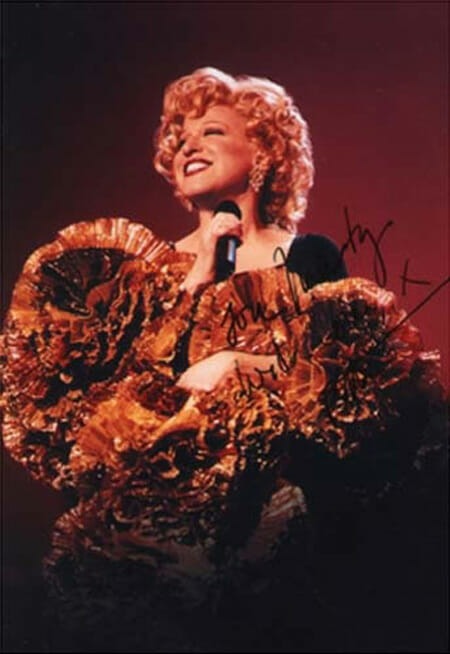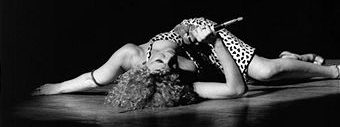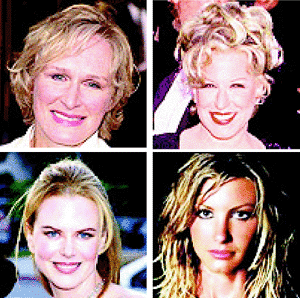
Time
Monday, Dec. 13, 1993
Bette Comes Up Roses
By WILLIAM A. HENRY III;William Tynan/New York
Broadway’s 1959-60 season, though not a high-water mark in the vanished heyday of the book musical, brought The Sound of Music, Fiorello!, Carol Burnett in Once Upon A Mattress and Jackie Gleason in Take Me Along. Yet it is probably best remembered among devotees for a show business story called Gypsy, which was based on the memoirs of a stripteaser’s rivalry with her actress sister but evolved into a harrowing portrait of their implacable stage mother, played by Ethel Merman in her final and, many feel, greatest origination of a Broadway role.
For actresses, the idea of emulating Merman is intimidating, but the part has proved irresistible. Rosalind Russell memorably played it on film in 1962. A 1974 Broadway revival brought Angela Lansbury a Tony award, and a 1989 revival did the same for Tyne Daly. Gypsy has never been better told nor Momma Rose more arrestingly played, however, than in the 3-hr. CBS television version to air this Sunday starring Bette Midler. If there is ever again to be a mass audience for filmed musicals more complex and less percussive than MTV videos, this is the vehicle to blaze the path.
The project is a big risk for CBS, which is paying more than $5 million for two showings despite Broadway’s ordinarily limited appeal on screen, and for the producers. To help offset the $14 million cost, Gypsy will be released as a feature film internationally and perhaps in the U.S. A soundtrack is already on sale. Says Robert Halmi Sr., an executive producer: “When Bette decided she wanted to do it, that’s when this project came to life.”
Midler, who has re-ignited her career with a smash national tour this fall, may be a good choice for getting ratings but she was a risky one artistically. She has always been more of a personality than an actress, more engaging as herself than as someone else, save in her exquisite portrayal of a doomed Janis Joplinesque singer in The Rose. Midler’s style is ironic, mocking, frequently distanced from the material she is playing. The Momma Rose of Gypsy is a desperate, driven woman, unfazed by law or morality in her single-minded pursuit of stardom for her children and, by proxy, herself. Her life is about perseverance, not talent. Irony has no place in her makeup.
Nevertheless, Midler long yearned for the role. “The music has always knocked me out,” she says. “It’s one fabulous song after another.” Her showstoppers include Everything’s Coming Up Roses; Some People; Mr. Goldstone, I Love You; You’ll Never Get Away From Me; Together, Wherever We Go; and the climactic Rose’s Turn. At a youthful 47 (she turned 48 last week) she looks plausible both as the mother of preadolescents and, in the later scenes, as the mother-cum-manager of a mature burlesque star. Says Midler: “I never thought I’d be old enough to play this part. When you’re very young, you imagine yourself with a lot of padding. As you grow older, you realize you don’t need the padding any more.”
Over the years Midler saw the Russell film and Lansbury and Daly on stage. She never saw Merman. Yet it was Merman, whose voice and manner were as brassy as Midler’s own, who haunted her. “It was one of those legendary performances I’d always heard about. Her spirit and the history of the part were always looming over me.” There are moments when she seems inhabited by Merman’s ghost, either in vocal inflections or in her movements, which are occasionally as corseted and semaphoric as the Merm’s. Yet for the most part, Midler makes the role her own. She conveys much less anger than most predecessors, and rather more romance. Her relationship with manager-paramour Herbie (Peter Riegert) is convincingly sexy, which atones for the mediocrity of Riegert’s singing. In contrast to the battleship that Daly made of the role, Midler is devastated, almost fragile, when her younger daughter June elopes and breaks up the family vaudeville act.
The most significant innovation comes in Rose’s Turn, an outpouring of Rose’s bitter longing for the spotlight. Where Daly played the scene in a fury, Midler gradually enters into the fantasy and smiles, flaunts her bosom, coyly sells herself to an imaginary audience. At the end, she and her daughter reach a reconciliation more convincing and complete than in most interpretations.
A few Midlerisms creep in, especially the ironic Sophie Tucker/W.C. Fields drawl. “A lot has to be played for laughs,” Midler insists. “I thought she had to be very winning.Otherwise, how could she get all those people to do all those things for her?” Textually, the production is faithful, word for word and as Midler says, note for note and tempo for tempo.
Every scene has a rich period look without diminishing the threadbare tawdriness in which Rose and her touring children are forced to live. The cast is a nice mix of high-profile TV faces (Ed Asner and Evening Shade’s Michael Jeterin throwaway cameos) and theater veterans (Christine Ebersole as the heart-of-gold stripper Tessie Tura and Anna McNeely reprising her Broadway turn as the rival ecdysiast Miss Electra).
The film was shot during eight weeks in Los Angeles, and more than half the soundtrack was recorded live rather than added in a studio. At the end of seven weeks of rehearsal, the company mounted the show on a soundstage for the original show’s prime mover, librettist Arthur Laurents. “That was the scariest thing we did,” Midler recalls. “It was like performing for God. At the end, he was very, very thrilled. That was the high point of the whole production.” Maybe so for Midler. For America’s once and, one hopes, future fans of the musical, the high point will be on the screen.

![Reblog this post [with Zemanta]](http://img.zemanta.com/reblog_e.png?x-id=ffc1ca15-63d1-40da-b2b3-a484a289761f)






I had this article taped to my bedroom wall in high school. I pretty much knew it word for word. Great seeing it here 🙂
awwww….glad I found it….